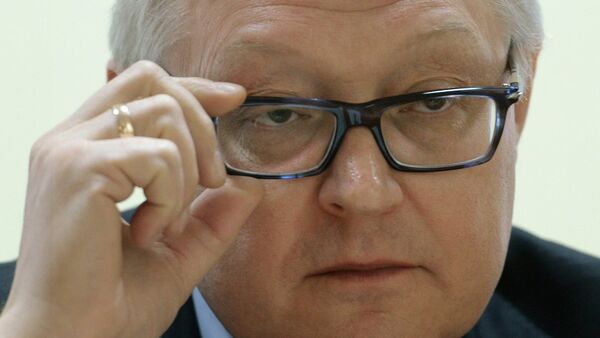Updated 10:02 p.m. Moscow Time
MOSCOW, October 16 (RIA Novosti) – The main issues concerning Iran's nuclear program, including transparency and the duration of the agreement, remain unresolved, Russian Deputy Foreign Minister Sergei Ryabkov said Thursday.
"The three blocks of questions – uranium enrichment, the future of the Arak nuclear reactor, the lifting of sanctions – are still not worked out. In addition to that, there is an array of issues that cannot be considered fully resolved yet and thus cannot be laid out on paper. This includes verifying [the implementation of the agreement] as well as the issue of transparency," Ryabkov told Russian journalists.
"There is some slow progress on the issues of sanctions and enrichment, which is insufficient in terms of meeting the deadline. There is no assurance that we are on the brink [of an agreement]," Ryabkov noted after the latest round of talks between P5+1 mediators and Tehran in Vienna.
According to the minister, apart from the most pressing issues of uranium enrichment, Iran's Arak nuclear reactor and sanctions, "there are some other issues, maybe less significant, but without their resolution it would be impossible to find a compromise and agree on a final deal".
"Paradoxically, like in rock-climbing, the ascent to the mountain top becomes more difficult with every subsequent step, increasing the danger of falling," Ryabkov explained.
On Wednesday, Ryabkov told RIA Novosti that every time a deadline for signing a comprehensive agreement on Iran's nuclear program is extended, the risk of the talks' failure increases.
The West has accused Tehran of developing nuclear weapons under the guise of a civilian nuclear program — claims repeatedly denied by the Iranian authorities.
At a meeting held in November 2013 in Geneva, Iran and the P5+1 group, comprising Russia, China, the United States, the United Kingdom, France and Germany, agreed to reach a long-term nuclear agreement by July 2014. The deadline was later postponed to November 24, 2014.


